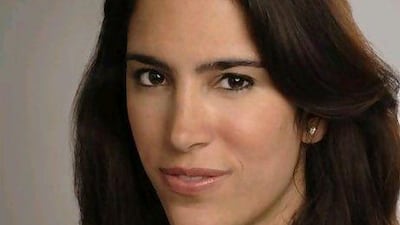ABU DHABI// Politics dominates the virtual conversation among the Middle East’s most influential Twitter users.
The communications consultancy Portland analysed three months of data from the social network to determine the region's 50 "most connected" Twitter users.
The UAE’s Sultan Al Qassemi, a commentator and writer, topped the list. Journalist Dima Khatib, based in Qatar, came second.
The largest proportion of the top-50 were based in Egypt.
Other UAE figures to make the list included Sheikh Mohammed bin Rashid, Vice President and Ruler of Dubai, and Sheikh Abdullah bin Zayed, Minister of Foreign Affairs.
A survey of the most connected users found that 78 per cent mainly discussed politics, while 67 per cent shared national news. About one third tweeted on their personal life.
“Twitterati” who attended a panel discussion about the study yesterday said it was no surprise that Mr Al Qassemi – who has nearly 150,000 followers – was the most influential.
“He’s been very active most recently on the events around the region,” said Noura Al Kaabi, CEO of twofour54, Abu Dhabi’s media zone.
However, the study distinguished between popularity and influence by mapping the connections between users. Portland worked with the media platform Tweetminster to compile “back-end” data from the website, said Mark Flanagan, Portland’s partner for digital communications.
The analysis considered the number of followers, but also weighed whether their content was followed and “re-tweeted” by other people with many followers.
“Sultan Al Qassemi ... is someone who is not just influential on Twitter, but someone who’s connected to other top influencers in the Middle East,” Mr Flanagan said. “His voice is carrying way beyond his home territory.”
Overall, 38 per cent of the top-50 were commentators and activists, while 36 per cent were journalists. About one fifth of the top-50 were government officials or politicians.
“There are also religious figures,” Mr Flanagan said.
Zaid Belbagi, business development manager for Portland, said: “There are certain people you can tweet religious questions at. I think it’s what you’d call a twitter fatwa, almost.”
During the discussion yesterday, the panellists said Twitter is an important tool for governments.
"For the government to join the twitter-sphere, it's crucial," Ms Al Kaabi said.
Social media can fill the gap between rulers and their people as populations grow, Mr Belbagi said.
"These are no longer regions where people can see their rulers every Friday," he said.
“The use of Twitter does a lot to endear rulers and governments to the people.”
Michael Corbin, United States ambassador to the UAE, asked the panellists about the idea that Twitter highlights sectarian and political tensions.
“Some people are suggesting that Twitter is increasing tensions in the Middle East,” Mr Corbin said. “I’m a firm believer that Twitter is revealing and spreading the tensions that exist, not creating them.”
Ms Al Kaabi agreed. “I hear more people say Twitter is causing too many problems,” she said. “I think we should stop looking at Twitter and look at the problem.”
Ms Al Kaabi said she understood why politics is a main topic of conversation on Twitter.
"It's a subject that anyone can talk about ... this is where people tend to speculate and tell stories," she said.
She urged Twitter users to slow down, think and listen, especially before spreading unverified news.
“Twitter is not to be blamed,” said audience member Thabet Al Qaissieh. “It’s a tool, and how people use that tool.”
Still, he said: “There’s a certain degree of social irresponsibility on behalf of a variety of people.”
Mohamed Al Awadhi, the co-founder of Wild Peeta Shawarma, pointed out that Twitter has given a public voice to many people who lacked one before. “Freedom of speech, more than a privilege, is also a responsibility,” he said.
Top 50 most connected Twitter users in the Middle East
1- Sultan Al Qassemi (UAE) @SultanAlQassemi
2- Dima Khatib (Qatar) @Dima_Khatib
3- Wael Ghonim (Egypt) @Ghonim
4- Mohamed El Baradei (Egypt) @ElBaradei
5- Sheikh Mohammed bin Rashid (UAE) @HHShkMohd
6- Nabeel Rajab (Bahrain) @NABEELRAJAB
7- Rania Al Abdullah (Jordan) @QueenRania
8- Khalid Al Khalifa (Bahrain) @Khalidalkhalifa
9- Maryam Al Khawaja (Bahrain) @MARYAMALKHAWAJA
10- Turki Al Dakhil (Saudi Arabia) @TurkiAldakhil
11- Ahmed Al Omran (Saudi Arabia) @ahmed
12- Yosri Fouda (Egypt) @YosriFouda
13- Zaineb Al Khawaja (Bahrain) @angryarabiya
14- Saad Hariri (Lebanon) @HaririSaad
15- Mahmoud Salem (Egypt) @Sandmonkey
16- Alaa Abd El Fattah (Egypt) @alaa
17- Rima Maktabi (Saudi Arabia) @rimamaktabi
18- Gamal Eid (Egypt) @gamaleid
19- Salman Al Odah (Saudi Arabia) @salman_alodah
20- Sherine Tadros (Egypt) @SherineT
21- Jamal Khashoggi (Saudi Arabia) @JKhashoggi
22- Alaa Al Aswany (Egypt) @alaaaswany
23- Nabil El Araby (Egypt) @lassecgen
24- Najib Mikati (Lebanon) @najib_mikati
25- Bahrain Center for Human Rights (Bahrain) @BahrainRights
26- Lara Setrakian (UAE) @Lara
27- Ammo Hossam (Egypt) @3arabawy
28- Amr Hamzawy (Egypt) @HamzawyAmr
29- S. Yousif Al Muhafda (Bahrain) @SAIDYOUSIF
30- Imad Bazzi (Lebanon) @TrellaLB
31- Sheikh Abdullah bin Zayed (UAE) @ABZayed
32- Naguib Sawiris (Egypt) @NaguibSawiris
33- Ministry of Interior (Bahrain) @moi_bahrain
34- Mansoor Al Jamri (Bahrain) @MANSOOR_ALJAMRI
35- Mazen Mahdi (Bahrain) @MazenMahdi
36- Waleed Abu Al Khair (Saudi Arabia) @abualkhair
37- Mona Kareem (Kuwait) @monakareem
38- Ahmed Al Shugairi (Saudi Arabia) @shugairi
39- Eman Al Nafjan (Saudi Arabia) @Saudiwoman
40- Heba Raouf Ezzat (Egypt) @Dr_Heba_Raouf
41- Nawara Negm (Egypt) @nawaranegm
42- Mustapha Hamoui (Lebanon) @Beirutspring
43- Lyse Doucet (Egypt) @bbclysedoucet
44- Dr Bassem Youssef (Egypt) @DrBassemYoussef
45- Matar Matar (Bahrain) @Matar_Matar
46- Ayman Nour (Egypt) @AymanNour
47- Manal Al Sharif (Saudi Arabia) @manal_alsharif
48- Reem Khalifa (Bahrain) @Reem_Khalifa
49- Wael Khalil (Egypt) @wael
50- Abdel Moneim Aboul Fotouh (Egypt) @DrAbolfotoh

